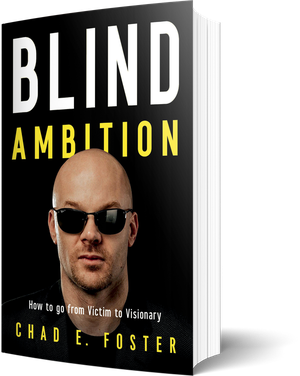Throughout my life I’ve had the great pleasure of getting to know people from many walks of life. Most are very fortunate, while others are less fortunate. Regardless of where they fall on this spectrum, the interesting takeaway for me is how individuals are affected so differently by the natural obstacles life throws in their path.
Some view a less-than-ideal job as a huge barrier to happiness, while others might navigate their daily routines without the benefit of eyesight or hearing and do so with a smile! What makes some people so susceptible to being dragged down by life’s smaller challenges while others have seemingly endless amounts of resilience and tenacity? The answer lies in how we frame a situation to ourselves.
What Story Do You Tell Yourself?
The single most important factor in determining your attitude toward a situation (and influencing the outcome) is the story you tell yourself about that situation. In other words, the problem is most likely not the situation itself but how you choose to explain the situation to yourself. Notice the use of the word “choose” — because it really is a choice. This is something to celebrate: We all have complete control over our view of life’s challenges, which gives us a great measure of influence over outcomes. For me, an eternal control freak, this was one of the most liberating discoveries of my life. No longer was I hostage to my circumstances. With this new mindset, I could refuse to play victim to the disease that took my sight. The word “victim” accurately illustrates how many people feel about a situation: Victims succumb to circumstance. Victims are helpless. They have no control or power. Victims, quite frankly, are losers.
I initially fell prey to that line of thinking myself because it’s a natural human response. Emotion can overcome anyone facing a trauma such as disease, loss of a loved one, or any condition that materially alters our lifestyle. That reaction is natural. In fact, not having that reaction would be very unnatural. However, over the next few years I realized that living in perpetual negativity was creating a toxicity and bitterness that consumed me. I had to find a way out of the prison that was my life, and I soon realized a great escape hatch: my mind._ While I could not control the physical world around me enough to correct my vision, I could control the way I chose to see the world. Instead of choosing to see what I did not have (eyesight), I opted to see what I did have. I still had my cognitive faculties, superb hearing, a tremendous family, and very good health. Not only that, I was living in history’s perfect time to go blind!
I lost my eyesight at the dawn of the Information Age. The Internet was lifting off and paving the way for a services economy and an information revolution never before seen. Computers and smartphones would soon saturate daily life. The prevalence of guide dogs, coupled with the vast amount of technological tools at our disposal, would provide me many options for professional fulfillment, pastimes, and running my household. It’s also safe to say that, given current medical advances, I might be able to see again within my lifetime. Even if I chose to focus my attention on what I lacked, it would not change my physical reality. I would still be blind. But rather than living my life in a constant state of churn, why not focus my energy and efforts on what I could change? Why not work with factors inside my sphere of influence?
Refusing The Excuses
I could have found a thousand great reasons to give up, but “reasons” is just another word for “excuses.” Excuses are for losers™. How many people have you seen atop the Olympic podium receiving the gold medal and making excuses? None! The people unwilling to make excuses are those who make it to the top. Who would you rather be: someone who found a way to break through barriers to achieve your goals, or someone who found good, and even possibly legitimate, reasons to fail? For me the decision is clear.
What is your decision? Again, it comes down to the story you’re told about your circumstances. But remember — you are the narrator! You choose how to frame your story. Will your story help you find legitimate reasons to fail, or will it set you up to bulldoze your barriers?
